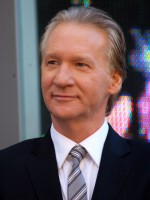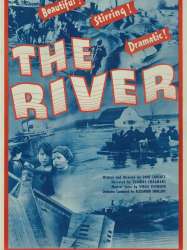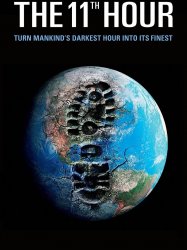Everything's Cool is a film of genre Documentary released in USA on 1 january 2007 with Leonardo DiCaprio
Everything's Cool (2007)

If you like this film, let us know!
- Infos
- Casting
- Technical infos
- Photos
- Videos
- Film quotes
- Characters
- Music
- Awards
Everything's Cool is a 2007 documentary film that examines the divide between scientists and the general populace on the topic of global warming. Director Dan Gold said of the motivation for the film that "I'm optimistic that finally the message that this is real, that human beings are the cause of the most recent warming trend, and that it's an important issue, that message is actually reaching America. On the other hand ... if that message was fully understood, we would be moving a lot faster to slow this down and to reverse this course."
The documentary was shown at the Sundance film festival in January 2007 and at the San Francisco International Film Festival in May 2007. The directors also took Blue Vinyl, a film about plastic pollution, to Sundance in 2002. It was shown on CBC in Canada as part of the Passionate Eye series.
The New York Times called it "a breezy polemic about the politics of global warming ... [that] adopts a cheerful comic tone to avoid scaring audiences." The LA Times said that "With wit and passion, Gold and Helfand marshal a plethora of data and developments yet never lose their narrative thread.". The New York Sun was less favourable, calling it "the best movie I've ever seen about global warming for kids in junior high school, but it's the most annoying movie about global warming I've ever seen for adults.
Actors

Leonardo DiCaprio
(Self (archive footage))

Bill Maher
(Self (archive footage))

Oprah Winfrey
(Self (archive footage))
Comments
Leave comment :
Suggestions of similar film to Everything's Cool
There are 0 films with the same actors, 8969 with the same cinematographic genres, 2491 films with the same themes (including 43 films with the same 3 themes than Everything's Cool), to have finally 70 suggestions of similar films.If you liked Everything's Cool, you will probably like those similar films :

The River (1938)
, 31minutesDirected by Pare Lorentz
Origin USA
Genres Documentary
Themes Environmental films, Documentary films about business, Documentary films about environmental issues, Documentary films about historical events, Disaster films
Actors Thomas Chalmers
Rating63%






spOILed (2011)
, 1h30Origin USA
Genres Documentary
Themes Environmental films, Documentary films about environmental issues, Documentary films about technology, Disaster films
Rating66%





Spoiled begins investigating energy myths by asking if people today believe we are "addicted" to oil and if oil is destroying our lives the way other addictions do. The energy movie documentary explores human relationship to oil addiction, and reveals a pattern of misinformation, disinformation, and deception about energy myths.

Black Wind, White Land (1993)
, 53minutesGenres Documentary
Themes Environmental films, Documentary films about environmental issues, Documentary films about historical events, Documentary films about nuclear technology, Documentary films about technology, Disaster films

The Unnamed Zone (2006)
, 1h20Directed by Carlos Rodríguez
Genres Documentary
Themes Environmental films, Documentary films about environmental issues, Documentary films about historical events, Documentary films about nuclear technology, Documentary films about technology, Disaster films
Rating63%





The Spanish film crew led by Carlos Rodriguez is following the life stories of three children - Lidia Pidvalna, Anastasia Pavlenko, and Andriy Kovalchuk - whose lives were drastically changed after an explosion at the Chernobyl Nuclear Power Station on April 26, 1986. Through the documentary, the children and their families "living perilously close to the exclusion zone around the destroyed station recount their fears, dreams, fantasies, and hopes for the future." Each child holds a "Chernobyl certificate" which bestows access to government grants and aid and is a gruesome reminder of their existential reality.

The Yes Men Are Revolting (2014)
, 1h31Genres Documentary
Themes Environmental films, Documentary films about environmental issues, Disaster films
Rating66%





The Yes Men are a culture jamming group that use satirical performance art to make political points. While impersonating public relations personnel, they hold fake press conferences where they announce corporations, governments, and other organizations have taken a new, leftist stance. After seeing little gain from their pranks and increasing demands in their personal lives, The Yes Men debate whether they should continue. They are reinvigorated by the Occupy Wall Street protests and embark on a new campaign to combat climate change denial.

Chernobyl.3828 (2011)
, 30minutesOrigin Ukraine
Genres Documentary, Historical
Themes Environmental films, Documentary films about environmental issues, Documentary films about historical events, Documentary films about nuclear technology, Documentary films about technology, Disaster films
Rating74%





Twenty-five years have passed since Valeriy Starodumov worked as a dosimeter scout in September 1986. Valeriy worked at the epicenter of the explosion, the reactor's operation area, which was the most radioactive part of the site. The protagonist, a direct participant in the operation, went to the roof himself and brought people there after a failed attempt to clear the area with robots. At the government level, it was decided to assign soldiers and cadets of military schools to the task of cleaning the roofs. Unique pictures of the events of 1986 are widely used in the film. "Chernobyl.3828" is dedicated to people who saved the world from the radioactive contamination at the cost of their health and life.

This Changes Everything (2015)
, 1h29Genres Documentary
Themes Environmental films, Documentary films about environmental issues, Disaster films
Actors Naomi Klein
Rating63%






The 11th Hour (2007)
, 1h32Origin USA
Genres Drama, Documentary, Crime
Themes Environmental films, Documentary films about environmental issues, Disaster films
Actors Leonardo DiCaprio
Rating71%





With contributions from over 50 politicians, scientists, and environmental activists, including former Soviet leader Mikhail Gorbachev, physicist Stephen Hawking, Nobel Prize winner Wangari Maathai, and journalist Armand Betscher, Paul Hawken, the film documents the grave problems facing the planet's life systems. Global warming, deforestation, mass species extinction, and depletion of the oceans' habitats are all addressed. The film's premise is that the future of humanity is in jeopardy.

Dams: The Lethal Water Bombs (2011)
, 21minutesDirected by Sohan Roy
Genres Documentary
Themes Environmental films, Documentary films about environmental issues, Documentary films about historical events, Documentary films about technology, Disaster films
Rating72%





The Banqiao Dam in China, with its 492 million cubic meters of water, has a similar capacity to the Mullaperiyar Dam, with 443 million cubic meters. When it was destroyed by torrential rains in 1975, it claimed the lives of 250,000 people. This documentary is based on the possibility of a similar disaster happening to the Mullaperiyar Dam in India.

Origin USA
Genres Documentary
Themes Environmental films, Documentary films about environmental issues, Disaster films
 Connection
Connection